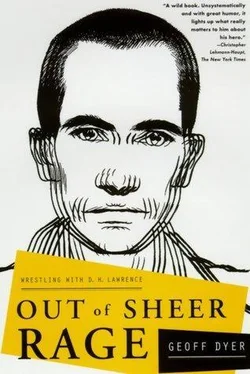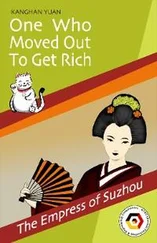We sat at the cold table, and the lamp immediately began to wane. The room — in fact the whole of Sardinia — was stone cold, stone, stone cold. Outside the earth was freezing. Inside there was no thought of any sort of warmth: dungeon stone floors, dungeon stone walls and a dead, corpse-like atmosphere, too heavy and icy to move.
This unexpected affinity between Lawrence and Bernhard — one preoccupied by the hope, as Frieda’s iconic version has it, ‘of more and more life’, the other with suicide and death — illuminates another characteristic that the writers share: they are both very funny. It seems ludicrous to say so but I value Lawrence increasingly if not as a comic writer then certainly as a comic figure — never more so than when he is in one of his tempers — which is most of the time. In Taos, after one of the quarrels that regularly erupted there, Tony Luhan stormed off, leaving his wife Mabel to seek comfort from Frieda. ‘So Mabel thought that she had an angry husband?’ writes a recent biographer. ‘Lawrence was angry even in his sleep, Frieda declared, and proved it by taking Mabel in to witness the spectacle of Lawrence mumbling and groaning in his sleep.’ Now this is the Lawrence I love. Frieda too, I suspect.
Claudio Magris identifies a recurring figure in European literature as the man who records all the little inconveniences life inflicts upon him and, in so doing, triumphs over them. Lawrence keeps saying he doesn’t care about publishers, about money, about Middleton Murry and all the other ‘canaille’ out there in the world but when we compile a list of all the things he doesn’t care about it amounts to a great anthology of grievance and complaint. Then there are the little inconveniences which resist simple solution — things being broken or mislaid or needing to be replaced — and which turn the letters into a vast saga of irritation.
Take the episode of the typewriter ribbon. On 4 July 1916, when he was finishing off Women in Love , Lawrence wrote to Kot asking him to get ‘a black ribbon for a Smith Premier № 2 typewriter’. Kot dutifully obliged but three days later Lawrence is writing to him to say that the ribbon ‘is just twice too wide for my machine, which takes a ribbon not more than half an inch wide. I have never seen a ribbon so wide as this. Ought I to double it, fold it? — or must I send it back and have it changed?’ On 10 July he did exactly that and on the 17th the long-suffering Kot duly sent a new one which turned out to be:
exactly like the last. I can’t possibly put it on my machine. And as it arrived without a word to say who sent it, or anything like that, I am at a loss.
My machine is Lawrence. C. Smith and Bros. Number 2. Perhaps I am wrong in calling it a Smith Premier. It takes a ribbon exactly half an inch wide. What then am I to do with a ribbon one-inch wide? All I want is an ordinary half-inch black ribbon. Can you solve the mystery for me?
One hardly need imagine what scenes must have erupted at the cottage in Zennor as Lawrence tried to cope with these successive ribbons. By the third week of July he was writing to Pinker saying that he had given up typing his novel (‘it got on my nerves and knocked me up’ and was proceeding with pencil. To Catherine Carswell he wrote even more adamantly: ‘Never will I type again. It is that which has made me ill.’ Not the typing per se , one imagines, but the exhaustion following from the rages that must have been incurred by the innumerable frustrations of trying to get the ribbon working. Then, on 1 August, it comes to an end. ‘Many thanks for the ribbon,’ he writes to Kot. ‘This is perfect. I suppose all the mistakes came from saying “Smith Premier”. I am very sorry.’
Now, nothing I have read about — or even in — Women in Love affords me as much pleasure as these letters about the Smith Premier. I read other letters in the same spirit, obsessively, eager to see what will set him off next.
One of the reasons Lawrence directed his grouchiest letter ever — the grouchiest letter ever? — at Brewster is because Earl and his wife Achsah were in Ceylon studying Buddhism. Lawrence had a fundamental antipathy to the peace they were searching for and which they wished on him. ‘But always remember I prefer my strife,’ he chided them, ‘infinitely, to other people’s peace, haven, and heavens.’ That, I think, is a daring, beautiful preference. Comforting, too: it offers the kind of solace that Lawrence would have gleaned in 1910 when he first read Nietzsche. He expanded on this claim early in 1922, in a series of letters to Brewster which show no trace of the temper of two months previously. ‘More and more I feel that meditation and the inner life are not my aim, but some sort of action and strenuousness and pain and frustration and struggling through. . men have to fight a way for the new incarnation. And the fight and the sorrow and the loss of blood, and even the influenzas and the headaches are part of the fight and the fulfilment. Let nobody try to filch from me even my influenza.’ All this time he was wondering about whether or not to go east. When he wrote to Brewster on 18 January he conceded ‘for the first time’ that Brewster might ‘be right’ and himself wrong. ‘No, I believe you are right. Probably there, east, is the source : and America is the extreme periphery: Oh god, must one go to the extreme limit, then to come back?’
This might well be Rilke crying out. It almost sounds — the influence of Frieda? — as if it were translated from the German. Lawrence’s reluctance to go east persisted but it was expressing itself less and less forcibly. ‘I only know it seems so much easier, more peaceful to come east. But then peace, peace! I am so mistrustful of it: so much afraid that it means a sort of weakness and giving in.’ A week later Lawrence gave in and arranged to go to Ceylon. He hated it, needless to say, and took what might be termed a profound personal dislike to Buddha ‘and his rat-hole temples and his rat-hole religion’. Still, as he had said, he had gone east in order to go west, had seen the tranquillity of the east and could put it behind him. Brewster’s way was not his. Rather, as he wrote to Rolf Gardiner, ‘I am essentially a fighter — to wish me peace is bad luck — except the fighter’s peace.’
And this fighter’s peace did come to him. A new calm enters Lawrence’s letters, from the beginning of 1926. It makes itself apparent not as an achieved or permanent state but as a tone. He had known interludes of repose before but, increasingly, the balance shifts towards contentment interspersed with outbreaks of rage. We must not sentimentalise Lawrence: again and again, especially when writing to the Brewsters, he affirmed his fighter’s nature — ‘My business is a fight, and I’ve got to keep it up. . Caro, don’t ask me to pray for peace. I don’t want it’ — but he was becoming calmer. His philosophy remained fundamentally the same, namely that ‘All truth — and real living is the only truth — has in it the elements of battle and repudiation. Nothing is wholesale. The problem of truth is: How can we most deeply live ? And the answer is different in every case.’ That, it seems to me, is the nearest Lawrence ever came to summing up all the diverse elements and contradictory impulses in his thought, in his life. In his own case, by 1926, living ‘most deeply’ meant becoming more accommodating, less unyielding.
This tendency towards accepting the world rather than railing against it was closely connected to the unavoidable fact of his own approaching death. In November 1929, writing to Brewster, he made a connection between his illness and his rage: ‘But I do believe the root of all my sickness is a sort of rage. I realise now, Europe gets me into an awkward rage, that keeps my bronchials hellish inflamed.’ Now that he was in the grips of his illness, now that he had accepted that he was ill, he could be at peace.
Читать дальше












